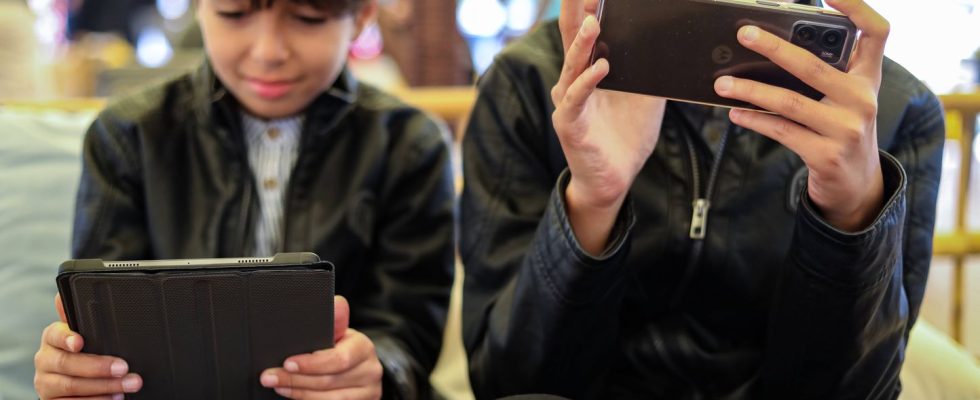Do parents have the right to read their teenager’s WhatsApp conversations or watch their Snapchat stories? The issue returned to public debate after Sabrina Agresti-Roubache defended the right of parents to “snoop” through their children’s phones.
Guest of the program “Les 4 vérités” on France 2 on Tuesday, the Secretary of State for Citizenship and the City wanted to defend a firm position in the face of the violence caused by certain young people. “A teenager is a minor, she said. Parents have the right to search the phone, to look for something in the room, if there are drugs for example. »
For the Marseille politician, it is not a question of “mingling for the sake of mixing”, but of “protecting” children from the dangers of the Internet. What the law says ? Do parents really have an unconditional right to control the content of their children’s phones? 20 minutes make the point.
FAKE OFF
The principle of respect for the private life of every child has been enshrined at the international level for three decades: the United Nations registered it in 1989 in the international convention on the rights of the child, a convention ratified by France. In France, this principle also appears in the Civil Code. The Penal Code guarantees as for him, the secrecy of correspondence, including electronic exchanges.
This framework established, how can we articulate respect for the privacy and autonomy of the child and the protective role that parents must ensure? A law from March 2022 provided an initial response, by requiring the installation of parental controls on connected devices.
Warning against intrusive features
This device allows, at a minimum, to prohibit or restrict the installation of certain applications. Its activation “must protect the child from exposure to shocking, violent or pornographic content”, writing the CNIL. For this authority responsible for controlling the use of our data, “parental control is an appropriate tool to support minors on the Internet”.
However, this “must be developed in such a way as to protect their data”. The CNIL thus warns against control functionalities which may prove intrusive, such as the permanent geolocation of the minor.
The child “must know what is being controlled”
Using these features carries risks, such as “altering the relationship of trust between parents and the minor”. The CNIL warns that the adolescent “may be encouraged to implement concealment strategies so as not to share information with his parents.”
The Defender of Rights made the same observation in 2022, at the time of publication of a report on the right to privacy of minors. Claire Hédon emphasized at the microphone of France Inter that “trust” was “essential”: “That parents ask a certain number of questions, that there be parental control when children go to Internet sites, no problem, but the child must be warned. He must know what is being controlled. » The Defender emphasized that “protection of privacy requires this trust” between parents and child.

